Even with terminal cancer, people are sleeping in Internet cafes… “Foreign Homeless” are rapidly increasing, and some are even dying!
Nonfiction writer Kota Ishii delves into the reality of the "young homeless," young people who have lost their homes!
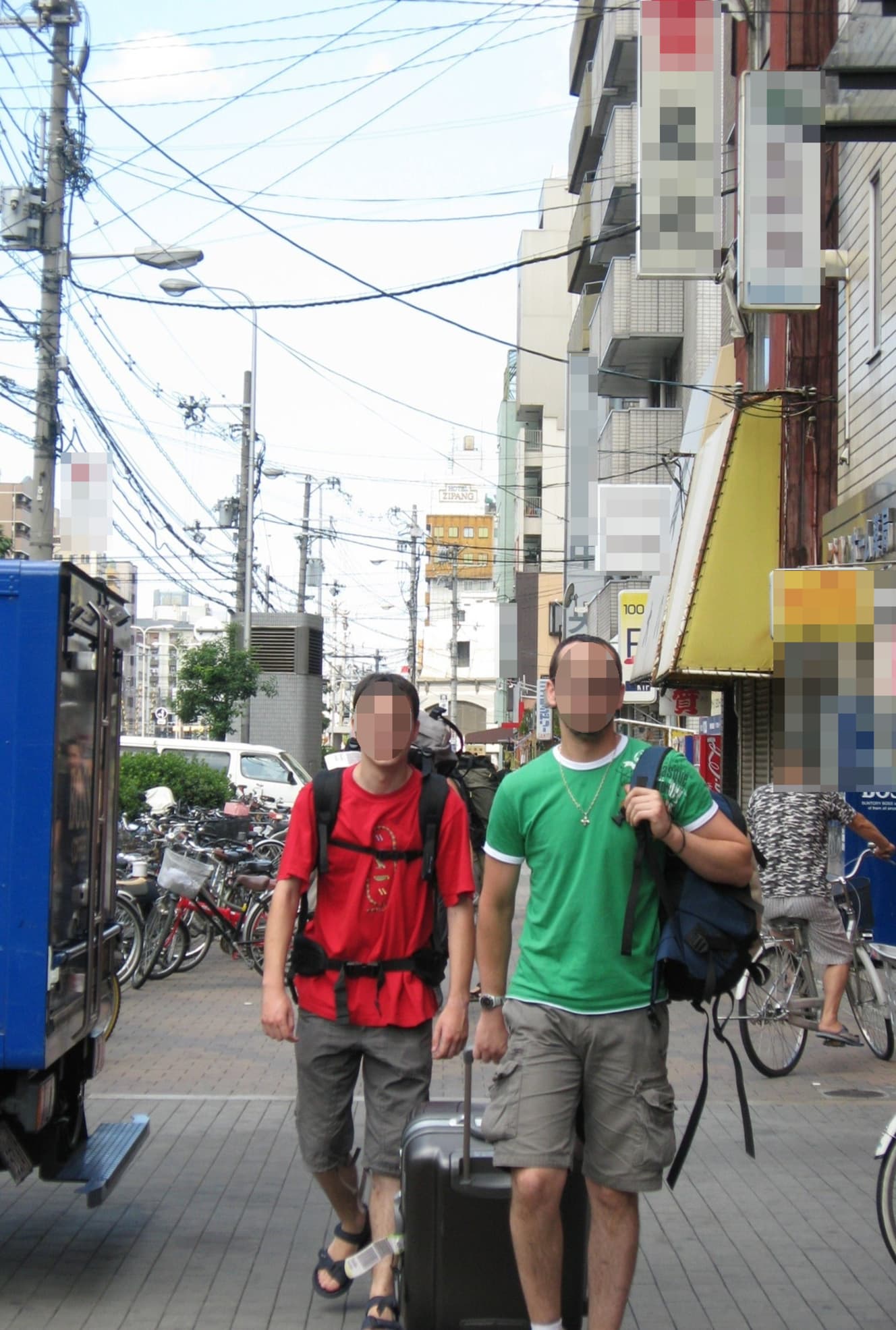
We would like to look at the social background of the increase in the number of foreigners who are homeless in Japan, following on from Part I: Some Lose Their Lives… Background to the Rapid Increase in the Number of “Foreign Homeless”].
Tsukuroi Tokyo Fund is a general incorporated association that supports needy people mainly in the Tokyo metropolitan area. Its staff member, Yuma Osawa, is mainly involved in support projects for immigrants, refugees, and other foreign nationals.
Osawa points out that since the spread of the new coronary disease, the power of mutual assistance, in which foreigners help other foreigners in need, has been weakening.
There have been times in the past when foreigners have been stuck in their lives,” he says, “but because of the help of their peers, they have become homeless. But because they had the help of their friends, they did not often become homeless.
However, after the spread of the new Corona, the recession became serious and the economic power of foreigners as a whole declined. As a result, we were unable to reach out to our fellow citizens even when they were in need. And so we began to see serious situations starting with those who were in the weakest positions.”
What must be considered here is who are the “most vulnerable” among foreign workers.
If a foreigner owns a visa that allows him or her to work, he or she can change jobs even if he or she loses his or her job due to the recession. If they do not choose a job, they can get some kind of job.
“I will only allow you to stay in Japan.
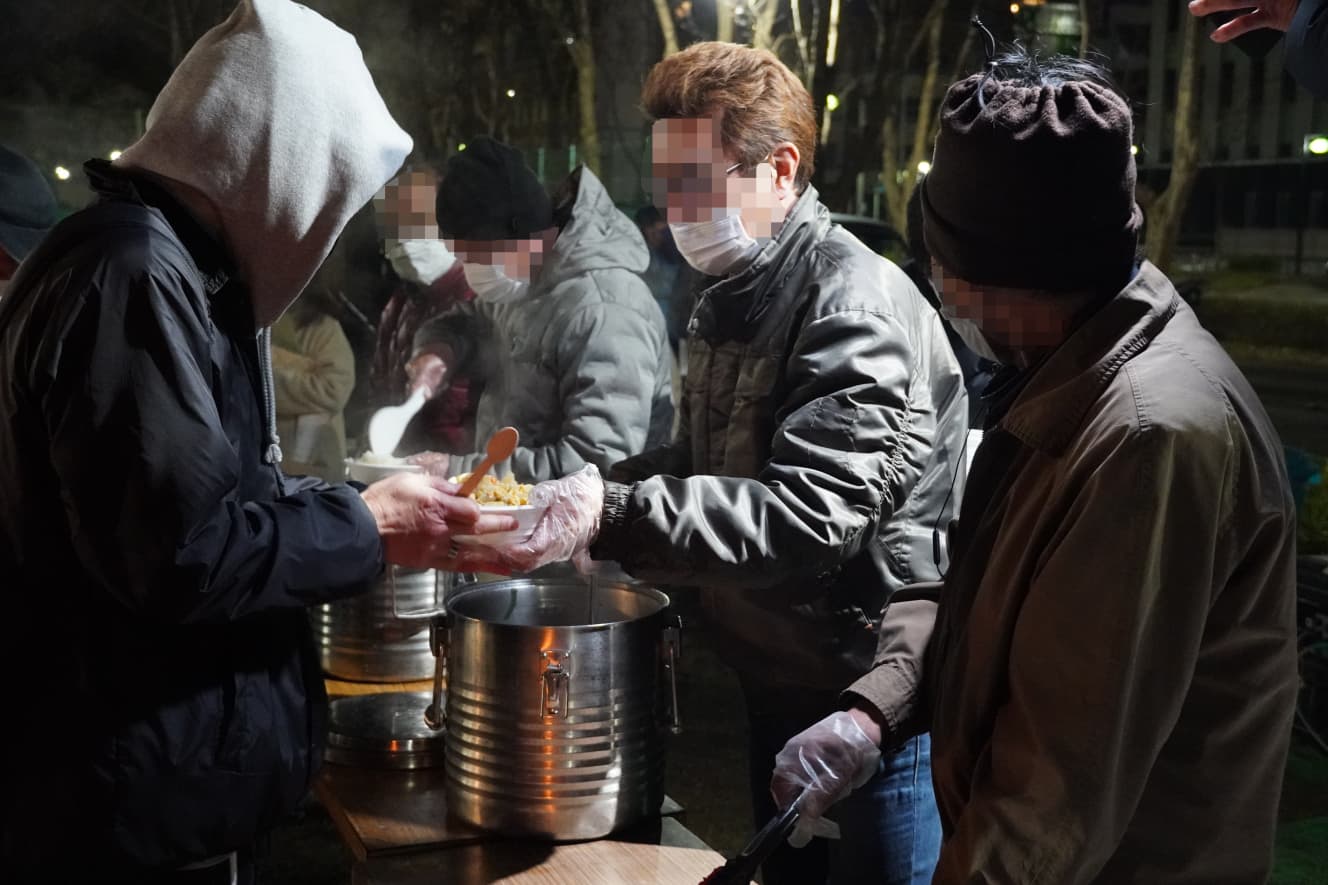
But some foreigners do not have such visas. A typical example is the refugees that Osawa supports. They fled for their lives from their home countries, but were not recognized as refugees by Japan, and are now residing in Japan under the status of “provisional release.
To put it simply, provisional release means that they are not allowed to work or receive social security benefits, but are only allowed to stay in Japan for the time being. However, it is difficult for refugees who have fled their home countries, leaving their personal belongings behind, to make a living in Japan, a developed country.
There are two things they can do. They can either work illegally by evading the Immigration Bureau or rely on the foreign community for financial support.
However, due to the recession caused by the new Corona, the businesses where they were illegally working have become more difficult and they have lost their jobs, and their supporters have become economically impoverished. This caused some of the refugees to lose their housing.
Some readers may think that it is their own fault that they are not recognized as refugees. However, Japan is known as one of the countries with one of the lowest refugee claim recognition rates in the world.
As an example, here are the refugee status rates (2019) for developed countries. Canada has 51%, the United Kingdom 39%, and the United States 22%. In contrast, Japan’s rate is only 0.29%. Even among developed countries, Japan treats refugees this lightly.
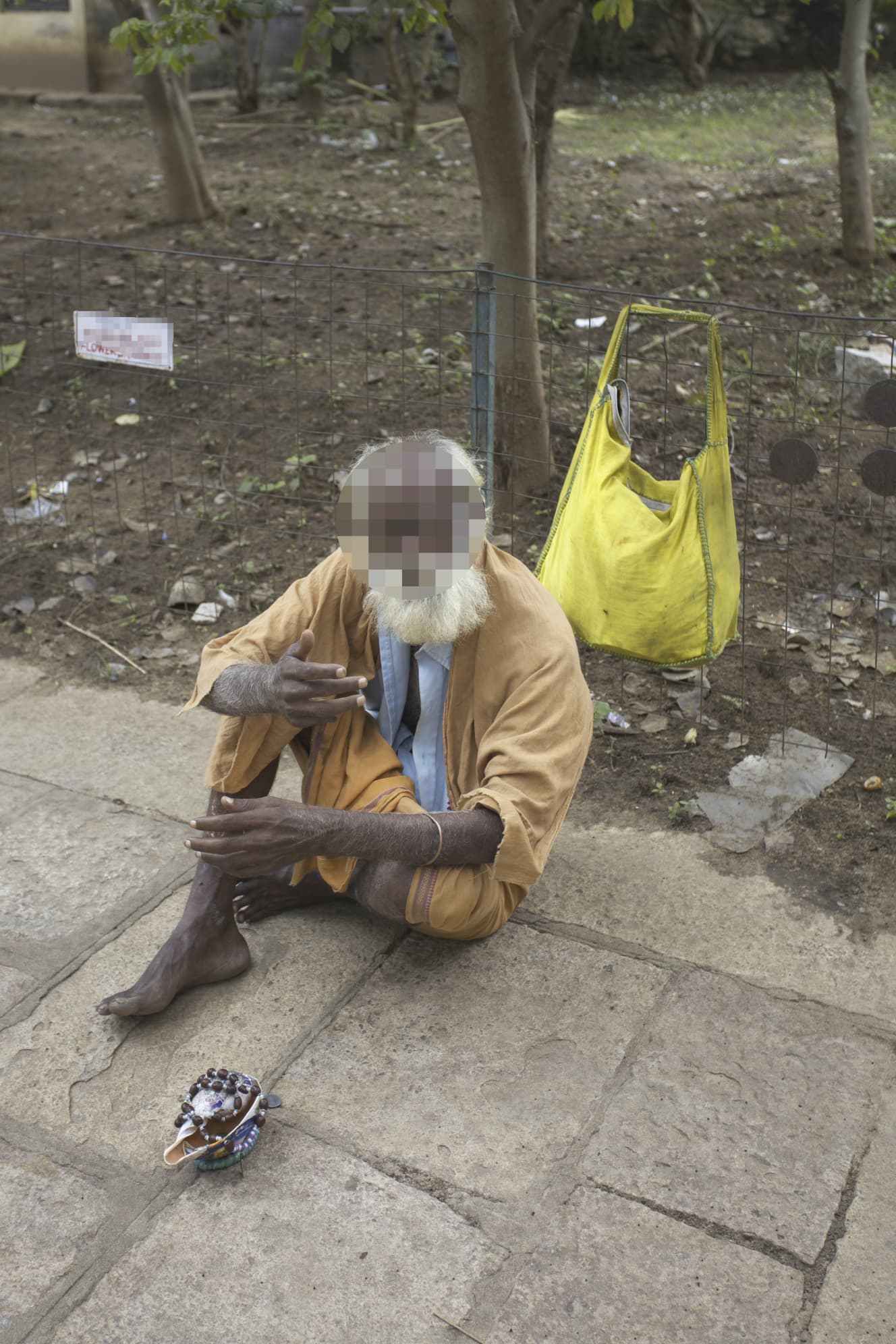
In fact, among the foreigners we interviewed this time, there was an Asian woman who became homeless in such a case. We would like to use the pseudonym “Ms. A” due to her special circumstances as a refugee.
After arriving in Japan, Ms. A left the immigration office on provisional release and lived at the home of an acquaintance from the same country. However, due to personal reasons, that acquaintance had to move out.
Ms. A lost her residence and lived in several parks, and experienced being attacked by Japanese several times. She could not bear the fear of living on the street and asked another acquaintance for help. That acquaintance could not afford to take Ms. A in, so he introduced her to a Japanese man.
The Japanese man agreed to let Ms. A stay at his house, but after a while he started asking her for sexual favors, which she did not like but had to accept out of fear of returning to homelessness.
It was six months later that Mr. A was able to leave the house. Another person from his hometown found out about his situation and helped him find another supporter.
Generally, if a Japanese person becomes homeless, he or she will come up with some way to survive, such as working a day job, collecting scrap metal, or building a cardboard house. They also have some idea of a safe place to live or a way to hide themselves.
However, this is not the case for foreigners. They are literally penniless, sleeping on the streets because they have no information at all. Therefore, the risk of becoming homeless is far greater than for Japanese.
Nor can they receive medical treatment at hospitals.”
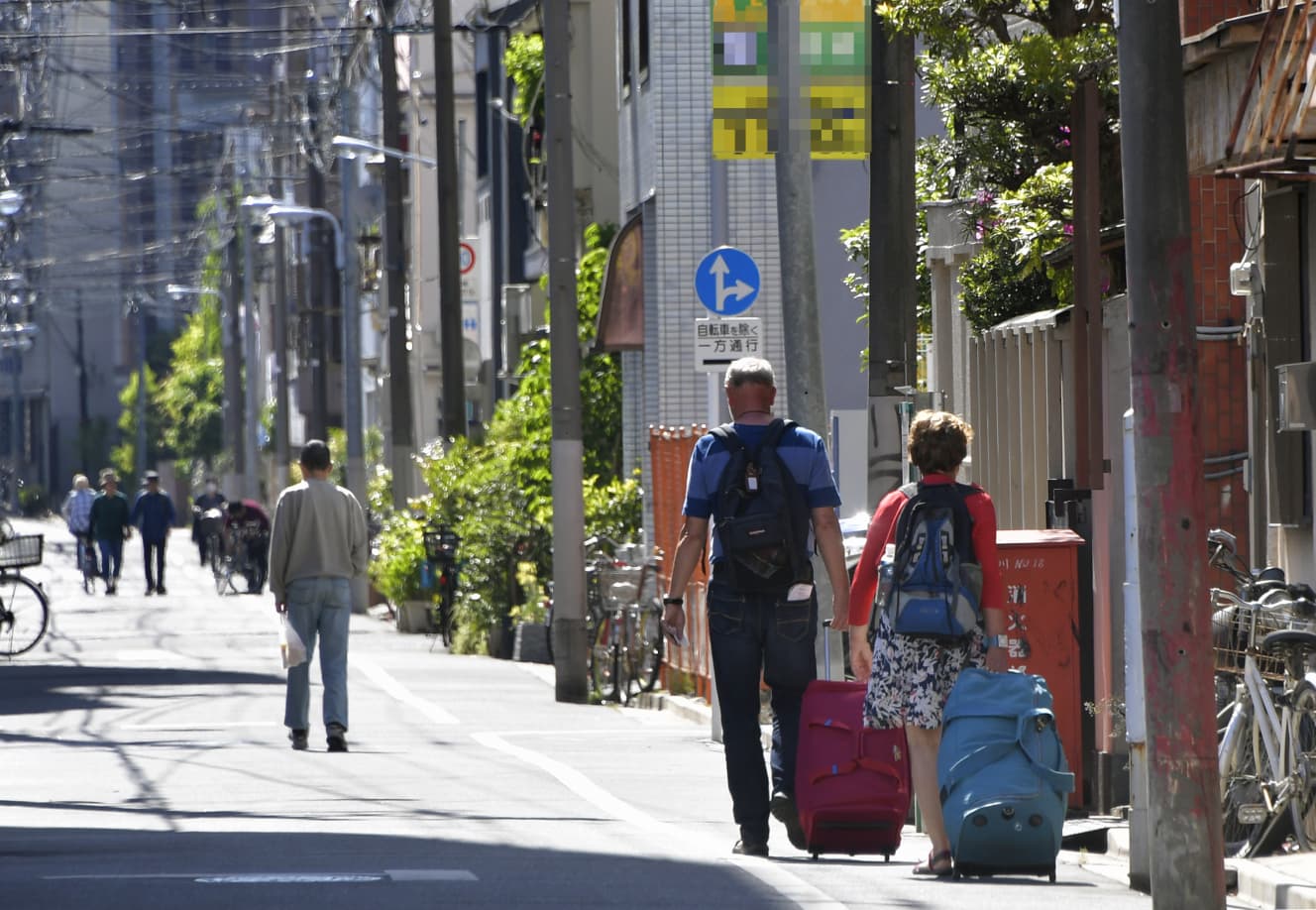
Osawa tells the following story.
The problem is that the number of foreigners released by the Immigration Bureau has almost doubled.
The problem is that not a few of the foreigners being released by the immigration office are complaining of physical and mental illness. Their health deteriorates while they are detained at the immigration office. However, they do not have insurance when they are let out, so they cannot go to the hospital to receive treatment. In some cases, the worst case scenario is death.”
One case Osawa encountered is a Cameroonian woman. Her application for refugee status was not approved, and she was detained twice at the immigration office. She had been feeling something wrong with her health since that time, but was unable to undergo a thorough examination, and after being released on provisional release, she went to the hospital and was found to have stage 3 cancer. It had metastasized throughout her body and there was little hope for a cure.
She was discharged from the hospital with a chip on her shoulder, but what awaited her was a housing problem. She had been locked out of her apartment for nonpayment of rent.
With no place to go, she began a life of homelessness, sleeping in Internet cafes with her terminal cancer. Along the way, church officials found her and admitted her to a well-meaning hospital, but she died soon after. It was only three hours later that she received her “residence card,” which granted her one-year residency status.
Foreigners on provisional release are unable to work and have little access to the Japanese welfare system. Furthermore, if their health is often compromised, it is clear that not only their livelihood, but even their survival, is in jeopardy.
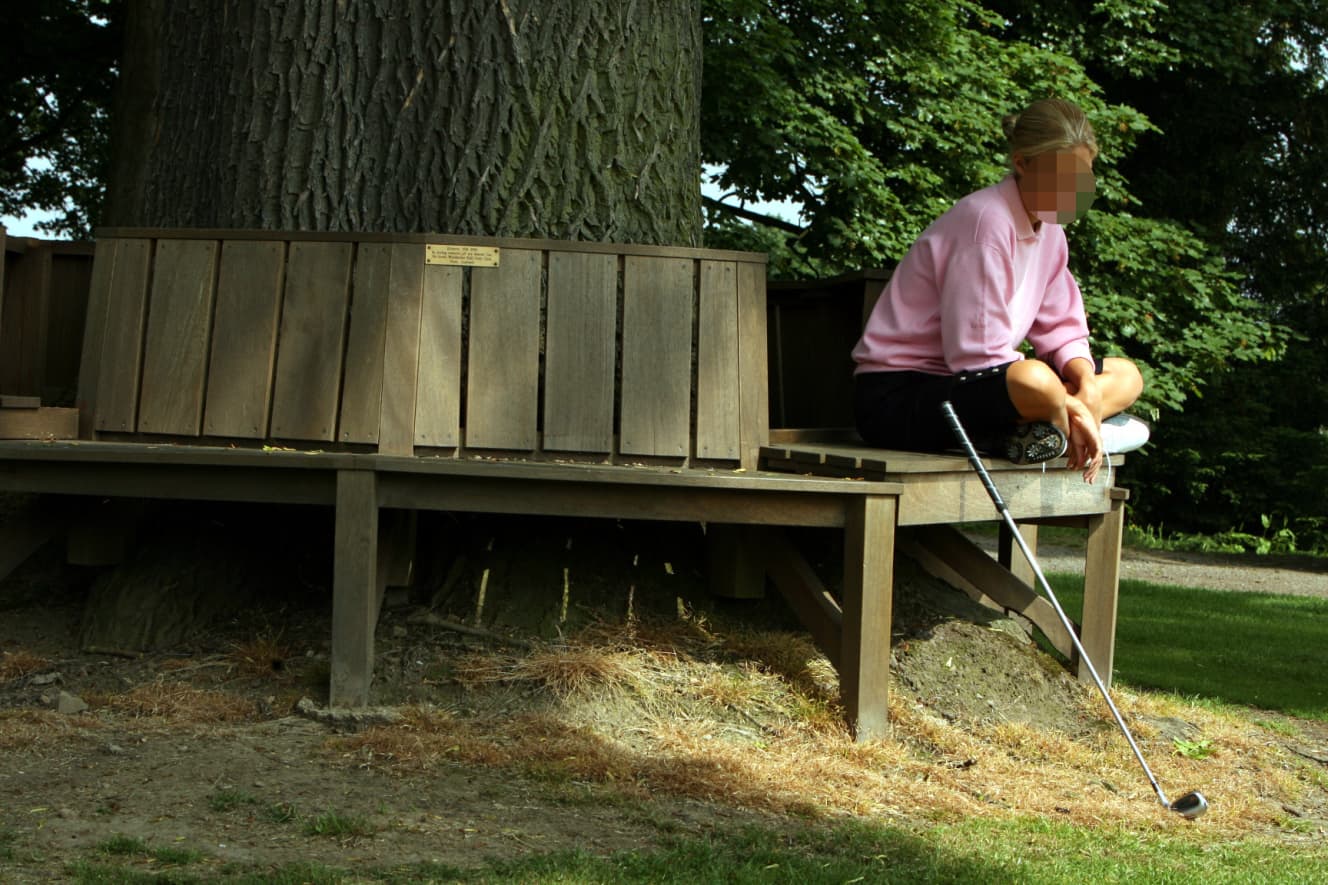
The idea that comes to mind is support from the private sector. But the cost is extraordinary. Says Osawa.
At our shelter, we support eight foreigners. Usually, when we support Japanese people in need, we provide them with housing where they can live for a certain period of time and help them stabilize their lives while taking advantage of various systems, such as welfare.
However, this is not the case for foreigners on provisional release. They are not allowed to work and cannot use the social welfare system. So once we accept them here, we have no choice but to keep supporting them until they are granted refugee status. More to the point, they are basically never granted refugee status, so the support is semi-permanent.”
If you want to support refugees, you have to “take care of” not only their rent, but also their food, utilities, and even medical expenses. Even if each refugee costs 1.5 million yen per year, the total would exceed 10 million yen for eight people.
What is even more difficult is that it is more difficult to collect donations for foreign aid compared to Japanese aid. Many companies donate to organizations that support the needy, but they feel rejected by the keywords “refugee” and “provisional release. They believe that companies cannot support people whose stay is not officially recognized by the government.
“Can’t work,” “sick,” “can’t return home.
But when it comes to refugees, they are people who have fled for their lives after being subjected to discrimination and conflict in their home countries. Many developed countries recognize them as refugees, but Japan does not. Therefore, they are suffering from poverty and disease here in Japan. In light of this, the government should consider some kind of support.
Osawa says, “At the very least, the government should provide refugee employment.
At the very least, I would like the government to allow refugees to work. How can refugees survive in Japan if they are unable to work, sick, or unable to return home? If they are not allowed to work at least, it will be said that they are being cut off from the rest of the world.
Refugees do not expect Japan to take care of everything. They are telling me that they want to live in a safe land, work properly, and become independent. Refugees who come to Japan are especially willing to do so because many of them had a good social status in their home countries. So if they were allowed to work at least, there would be many who could manage to work on their own.”
One thing has left a lasting impression on Osawa.
In June 2022, a “Refugee and Immigrant Fest” was held in Nerima. At that time, refugees who were unable to work participated in the festival by helping out. The refugees, who until then had been in the depths of despair and unable to do anything in Japan, came into contact with many people, came to feel that they were of use to others, and began to look different and lively.
They began to thrive,” says Osawa.
Refugees are very apologetic about the support they receive, and they think negatively about themselves because they can’t do anything. But they can shine so brightly just by helping out at a festival. Working is such a great strength for people. When I thought about that, I really realized that I need to work in order to survive.”
The increase in the number of foreign homeless people can be attributed to various social problems in Japan. However, the national government should not be in favor of increasing the number of foreign homeless people. So, what can we do now? I think it is time to think about it one step more deeply.
Call for Applications
The series “Young Homeless” is looking for people in their 10s to 40s who have no permanent place to live. We are looking for real-life experiences of people who have lost their housing, either now or in the past, such as people living in cars, Internet cafe refugees, migrant sex workers, day laborers living in dormitories, hotel dwellers, store dwellers, and people living in support facilities, as well as the voices of those who are providing support for these people. Anonymous or other conditions are acceptable, so please contact the author.
Kota Ishii (Author)
Twitter @kotaism
Email postmaster@kotaism.com
Interview and text: Kota Ishii
Born in Tokyo in 1977. Nonfiction writer. He has reported and written about culture, history, and medicine in Japan and abroad. His books include "Absolute Poverty," "The Body," "The House of 'Demons'," "43 Killing Intent," "Let's Talk about Real Poverty," "Social Map of Disparity and Division," and "Reporto: Who Kills the Japanese Language?
Photo: Jiji Press Afro